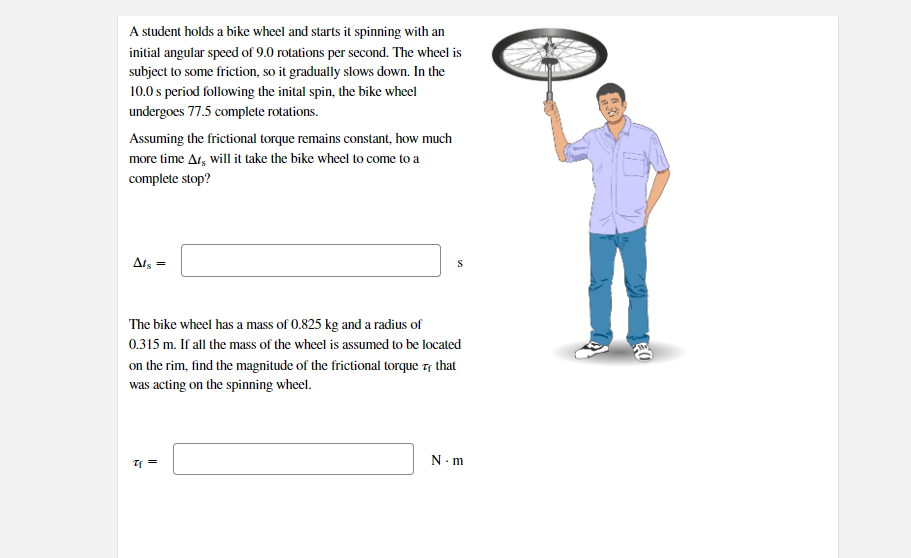A student holds a bike wheel and starts it spinning with an initial angular speed of 9.0 rotations per second. The wheel is subject to some friction, so it gradually slows down. In the 10.0 s period following the inital spin, the bike wheel undergoes 77.5 complete rotations. Assuming the frictional torque remains constant, how much more time Ar, will it take the bike wheel to come to a complete stop? At, = The bike wheel has a mass of 0.825 kg and a radius of 0.315 m. If all the mass of the wheel is assumed to be located on the rim, find the magnitude of the frictional torque ry that was acting on the spinning wheel. N.m
Angular Momentum
The momentum of an object is given by multiplying its mass and velocity. Momentum is a property of any object that moves with mass. The only difference between angular momentum and linear momentum is that angular momentum deals with moving or spinning objects. A moving particle's linear momentum can be thought of as a measure of its linear motion. The force is proportional to the rate of change of linear momentum. Angular momentum is always directly proportional to mass. In rotational motion, the concept of angular momentum is often used. Since it is a conserved quantity—the total angular momentum of a closed system remains constant—it is a significant quantity in physics. To understand the concept of angular momentum first we need to understand a rigid body and its movement, a position vector that is used to specify the position of particles in space. A rigid body possesses motion it may be linear or rotational. Rotational motion plays important role in angular momentum.
Moment of a Force
The idea of moments is an important concept in physics. It arises from the fact that distance often plays an important part in the interaction of, or in determining the impact of forces on bodies. Moments are often described by their order [first, second, or higher order] based on the power to which the distance has to be raised to understand the phenomenon. Of particular note are the second-order moment of mass (Moment of Inertia) and moments of force.

Step by step
Solved in 4 steps with 6 images









